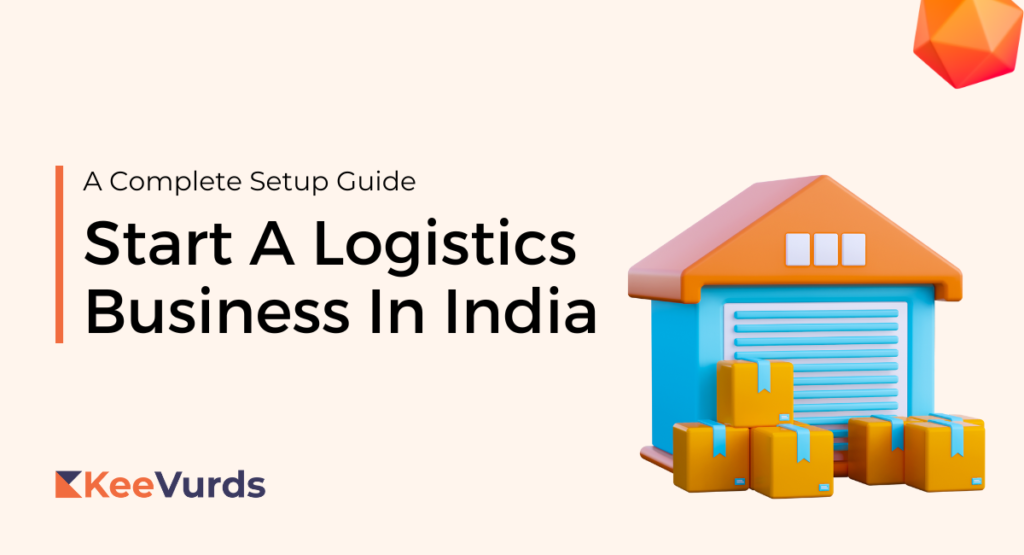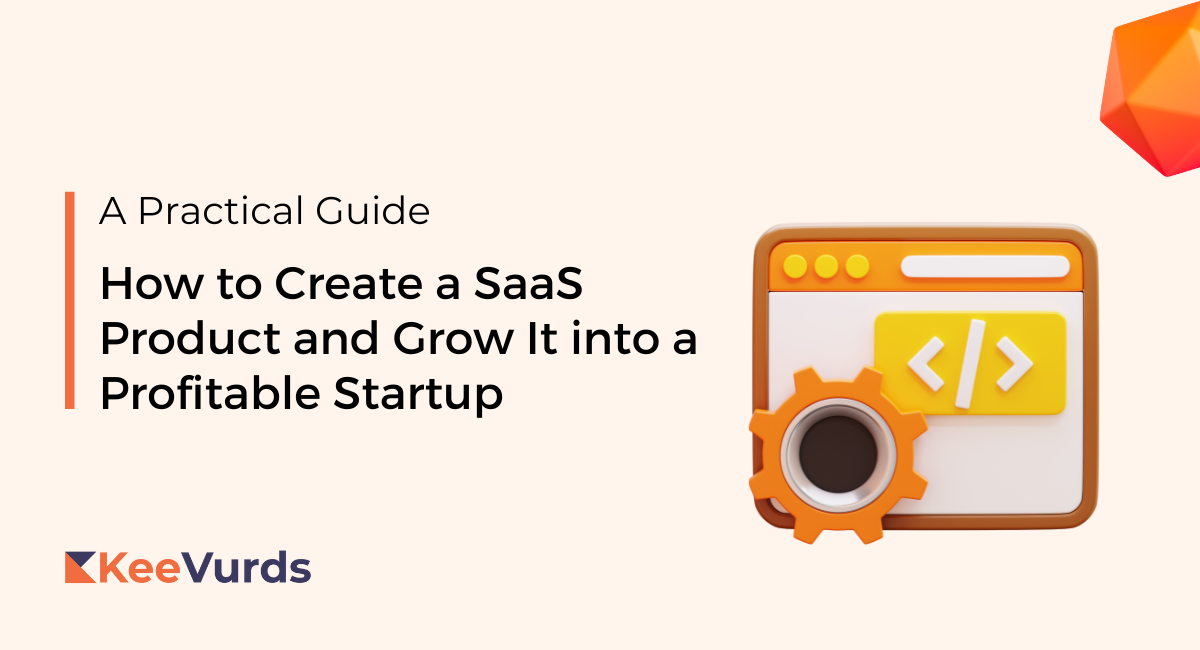The logistics market is expanding fast.
The latest e-commerce and food delivery trends are the biggest contributors to its growth. Almost every business needs a logistics partner for the movement of goods. It is the perfect time to invest in logistics now.
But before you invest in the industry, you must also consider other aspects related to the logistics industry before starting a logistics business.
While logistics is an integral part of supply chain management, the space is growing competition. That’s why we have created this guide to help you learn everything about starting a logistics business.
What is Logistics Business?
A logistics business manages all the processes involved in moving goods from the point of origin to retailers, wholesalers, or consumers.
A logistics business handles and transports goods for other businesses. Therefore, it has to involve activities such as warehousing, transportation, inventory management, and packaging.
Is Logistics Business Profitable in India?
Logistics is one of the fastest-growing sectors in India. In 2021, it was estimated at 250 billion USD and expected to reach 380 billion USD by 2025 at a CAGR of 10-12%. If this trend persists, the industry size can reach around $3 trillion dollars by 2047.
Setting up a logistics company may require a considerable investment, ranging anywhere from 20 lakhs to several crores. However, a fully-functioning logistics firm can be a lucrative business. You can easily make a 10-25% margin with the right pricing strategy and services.
Guide to Start a Logistics Business
Logistics is a crucial function of India’s economy. It is also one of the largest sectors in terms of employment, with more than 22 lakh employees (Economic Survey 2021).
Let’s understand step-by-step how to start a logistics business in India.
1. Business Model For Your Logistics Company
There are multiple business models available to start a logistics company depending on investment and market demands. You need to finalize one model to start. Some of the available business models are –
- Warehousing service
- Freight forwarding
- Air cargo
- 3PL or Third Party Logistics
All these models are entirely different from each other and have unique requirements. In addition, there are various legal requirements to set up these models. Therefore, carefully choose a model you are comfortable with that also falls under your budget.
2. Selecting The Target Market
Once you decide on the business model, you must focus on finding the right target market. A logistics business provides services to businesses that need to move goods from one place to another, such as B2B, B2C, and D2C.
Finalize a target market you can cater to based on your business model. Then, choose a segment that you believe you can serve the best by providing exceptional service.
3. Competitive Research
Research your competitors to understand what’s working for them and to get an understanding of the market. Always research your direct competitors first. Don’t try to go after big corporations. Instead, find the businesses that started in the last 2-3 years and are doing really well.
You must also finalize your area of operation. Studying your competitors gives you a broad understanding of how to operate in that area.
Remember not to copy-paste others’ strategies. Instead, learn from them and build your own game plan.
4. License and Registration
A logistics business is a legal entity that must be registered. You can choose the following entity types while registering your business
- Sole proprietorship
- Limited liability partnership
- One person company
- Partnership firm
- Limited liability company
- Public limited company
In addition to that, depending on your business model, you require various licenses. Some necessary licenses you need are –
- Income tax registration
- DGFT registration
- Udyog Aadhar
- ISI certificate
- Transport license
- GST
- Warehouse or Shop license
5. Strong Transportation
Strong transportation is the backbone of your logistics business. Your entire business reputation lies in your delivery efficiency and your shipping partners. You have two options to set up a robust transportation system.
- Set up your own system.
- Partner with a third-party transportation company
Setting up your own transportation can be quite costly. However, you are in complete control of operations. Relying on a transportation company is cost-effective. But it also takes control away from you. It may result in untimely delivery or canceled orders, adversely affecting your business reputation.
6. Hiring
You need an efficient workforce to run a logistics firm successfully. A logistics company requires logistics and supply chain professionals, warehouse workers, and delivery workers with a sales and marketing team. Hire diligent people and train them for a smooth workflow across the organization.
7. Software
A logistics business needs technology and software to streamline all the processes. For example, you need software or applications to track pick and drop, manage inventories, and supervise your transport system.
You have two options here as well. You can get third-party software, which will be cheap. Or, you can hire a software engineer to build one for you.
8. Branding & Marketing
Logistics is a tough market with high competition. You’re stacked up against thousands of other businesses providing a similar service as yours. In order to make profits, you have to stand out.
A strong brand presence and concrete marketing strategy can put you light years ahead of your competitors.
There are 2 ways you can market your business.
Digital Marketing
Creating brand awareness is essential for a new business. You can create profiles on various social media platforms. Engage with your potential customers and understand the struggles they’re facing.
Also, create a website to showcase your portfolio and for online booking. You can also run ads to attract customers to your website.
Offline Connections
Word-of-mouth is the most potent form of marketing in the logistics industry. You must focus on building connections to keep your brand in the limelight.
Focus on creating a positive and efficient logistics network. You can also collaborate with other businesses that are in the same domain but are not your direct competitors.
How Much Does Starting a Logistics Business Cost in India?
The cost to start a logistics company in India depends on the type of business model you choose. For instance, you can start a freight forwarding business with a capital of INR 60-80 lakhs.
However, a 3PL business might require a few crores as the set-up cost. On average, you can start a logistics company with INR 20-30 lakhs of initial capital.
| Cost Component | Estimated Cost Range (INR) |
|---|---|
| Registration and Licensing | 10,000 – 50,000 |
| Infrastructure | Varies based on location |
| Vehicles and Equipment | Varies based on requirements |
| Technology and Software | 50,000 – several lakhs |
| Staffing and Training | Varies based on workforce |
| Marketing and Promotion | Varies based on strategies |
| Insurance | Varies based on coverage |
| Total Estimated Cost Range | 5 lakhs – 25 lakhs or more |
Pros and Cons of a Logistics Business
Now that we understand the complete process of starting a logistics business. Let’s take a look at its pros and cons.
Pros
- High demand: Logistics is a vital part of supply chain management, and as long as there is a need for products to be transported and distributed, there will be a demand for logistics services.
- Revenue potential: A successful logistics business can generate significant revenue streams.
- Diverse customer base: Logistics businesses serve a wide range of industries, including manufacturing, retail, e-commerce, and more.
Cons
- Intense competition: The logistics industry is highly competitive, and there are many established players in the market.
- Capital-intensive: Starting a logistics business often requires a significant investment in assets like vehicles, warehouses, and technology.
- Market volatility: The logistics industry can be affected by economic fluctuations, changes in fuel prices, and shifts in global trade.
Conclusion
The logistics industry is growing rapidly, with more and more players emerging in the market every day. However, you can establish yourself in this sector with the right marketing strategies and branding. To start a logistics business, you need a decent investment.
You can expect a good ROI if you hire the right staff and partner with efficient shipping partners. Focus on user engagement with social media and build a network to operate successfully.





1 Comment